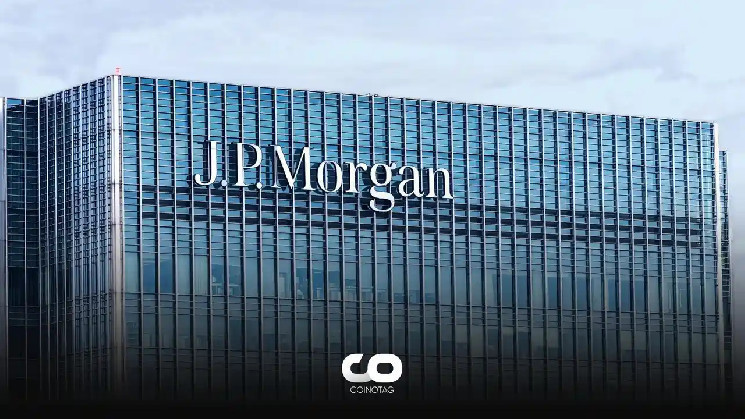- JPMorgan introduces blockchain-based collateral settlement with BlackRock and Barclays.
- BlackRock recognizes tokenization’s potential to minimize operational challenges in margin transactions.
- The transaction utilized JPMorgan’s Ethereum
-based Onyx blockchain and Tokenized Collateral Network.
JPMorgan, in a pioneering move, uses its Ethereum-based blockchain for tokenizing BlackRock shares, streamlining the clearing and margining process in a collateral transaction with Barclays.
A Revolutionary Settlement: Tokenized BlackRock Shares
Banking behemoth JPMorgan, in collaboration with investment giants BlackRock and Barclays, has marked a significant milestone in the finance realm. They’ve achieved the first live blockchain-backed collateral settlement. Harnessing the power of JPMorgan’s Ethereum-driven Onyx blockchain, BlackRock successfully tokenized shares from one of its money market funds. This innovative approach saw these tokens being relayed to Barclays Plc, serving as collateral in an OTC (over-the-counter) derivatives trade. The entire process signified a massive leap towards integrating blockchain technology into traditional banking functions.
Why Tokenization Matters to Traditional Banking
The implications of tokenizing orthodox financial assets cannot be understated, especially for banks. This digital transformation offers a mechanism to revolutionize and optimize several banking procedures. JPMorgan, being at the forefront of this technological integration, spearheads the tokenization movement, with major institutions like Citi now joining the fray. BlackRock’s statement on the potential of tokenized money market fund shares to diminish operational bottlenecks during margin calls further accentuates the significance of this evolution.
The Technical Intricacies: Fast and Efficient Tokenization
Delving into the technicalities of this groundbreaking transaction reveals its efficiency and speed. The process leveraged the connectivity between the fund’s Transfer Agent and JPMorgan’s Tokenized Collateral Network (TCN), facilitating tokenization in mere minutes. The exchange of tokens between BlackRock and Barclays occurred almost instantaneously. Such expedited transactions herald a new era for BlackRock, J.P. Morgan, and Barclays. The utilization of MMF shares as collateral in bi-lateral derivatives transactions presents a novel approach in the ever-evolving world of finance.
Conclusion
The melding of traditional finance with cutting-edge blockchain technology is a testament to the industry’s adaptability and vision. JPMorgan’s successful venture with BlackRock and Barclays exemplifies the endless possibilities blockchain offers, from streamlining transactions to revolutionizing collateral settlements. As more banking titans venture into this realm, the future of finance seems set to be more integrated, efficient, and revolutionary than ever before.
